The Future of Europe: Is there a European Identity?
LIVE VIRTUAL DEBATE | 1pm (New York) | 7pm (Paris)
The fifth session of the "Debating the Future of Europe" series will explore whether the EU integration process has forged a sense of common identity (culturally and politically) among Europeans. Participants will also discuss how minorities and migrants relate to such an identity.
Join Magali Bessone (Paris I Panthéon Sorbonne), Riva Kastoryano (CNRS, Sciences Po), Deborah Levy (writer), and Mark Lilla (Columbia), in a debate moderated by Mark Mazower (Institute for Ideas and Imagination, Columbia).
This discussion is part of the series “Debating the Future of Europe,” organized by Columbia Global Centers | Paris, the European Institute and the Alliance Program.
Co-sponsored by: Columbia Alumni Association,Columbia Maison Française, Columbia University Libraries, the Institute for Ideas and Imagination, European Legal Studies Center at Columbia Law School, Le Grand Continent, La Maison de l'Europe de Paris,and Sciences Po American Foundation. With additional support from the Erasmus + programme of the European Union and the Advisory Board of the Paris Global Center.
SPEAKERS
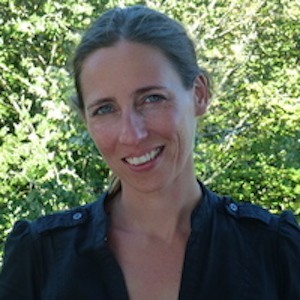
Magali Bessone is a professor of political philosophy at Université Paris 1 Panthéon-Sorbonne. A former student of the Ecole Normale supérieure in Paris, she holds the agrégation and a PhD in philosophy. Her work focuses on contemporary liberalism, on theories of justice, on international criminal justice and on theories of race and racism. She has published an annotated translation of W. E. B. Du Bois’s The Souls of Black Folk (Les Âmes du peuple noir, ENS, 2004, reprint La Découverte, 2007); she is the author of Sans distinction de race ? (Paris, Vrin, 2013). With Daniel Sabbagh, she co-edited the anthology Race, racisme, discriminations (Hermann, 2015). Her latest book Faire justice de l'irréparable. Esclavage colonial et responsabilités contemporaines was published in November 2019 by Editions Vrin.
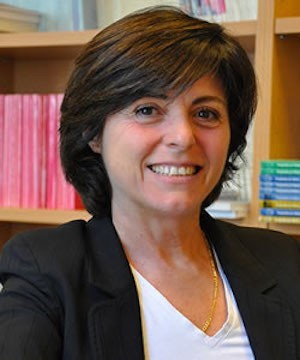
Riva Kastoryano is a senior research fellow at the CNRS and teaches at the Institute for Political Sciences (Sciences-Po—Paris). Her current work explores the meaning of community in relation to states, territory, and space. She is particularly interested in how the transnational uses of religion and ethnicity for political purposes in Europe and other democratic societies give rise to a “transnational nationalism,” a new form of nationalism beyond state boundaries as well as a new expression of belonging and political engagement. Her books include Negotiating Identities: States and Immigrants in France and Germany (Princeton University Press, 2002). Kastoryano earned her undergraduate and master’s degrees in economics at the Sorbonne and her PhD in sociology at the Ecole des Hautes Etudes en Sciences Sociale. She held a lectureship in social studies at Harvard University for three years. After she returned to Paris, she was appointed to the CNRS affiliated with CERI-Sciences.
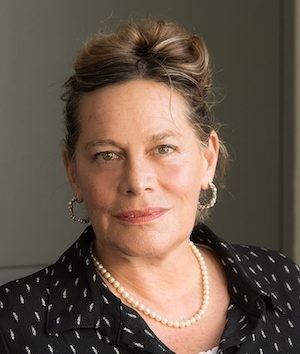
Deborah Levy is a novelist and playwright. The author of eight works of literature and two works of memoir, Things I Don’t Want to Know, and The Cost of Living, she was shortlisted for the Man Booker Prize for her novels, Swimming Home and Hot Milk. She most recently published the Booker-longlisted The Man Who Saw Everything and the short story collection Black Vodka. Her plays have been staged by the Royal Shakespeare Company. Her acclaimed dramatizations of two of Freud’s most iconic case histories on the subject of hysteria and infantile neurosis, “Dora and The Wolfman,” were broadcast on BBC Radio 4. She is a Fellow of The Royal Society of Literature.
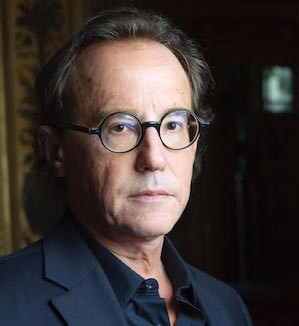
Mark Lilla, Professor of Humanities, specializes in intellectual history, with a particular focus on Western political and religious thought. Before moving to Columbia in 2007 he taught in the Committee on Social Thought at the University of Chicago and at New York University. A regular contributor to the New York Review of Books, he is the author of The Once and Future Liberal: After Identity Politics (2017), The Shipwrecked Mind: On Political Reaction (2016), The Stillborn God: Religion, Politics, and the Modern West (2007),The Reckless Mind: Intellectuals in Politics (2001),and G.B. Vico: The Making of an Anti-Modern (1993). He has also edited The Legacy of Isaiah Berlin (2001) with Ronald Dworkin and Robert Silvers, and The Public Face of Architecture (1987) with Nathan Glazer. He is currently writing a book titled Ignorance and Bliss, and another on the history of the idea of conversion.
MODERATED BY
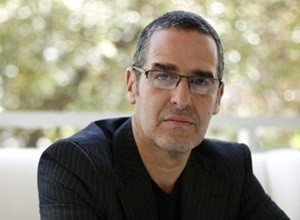
Mark Mazower, Ira D. Wallach Professor of History at Columbia University, specializes in modern Greece, 20th-century Europe, and international history. He comments on international affairs and reviews books for the Financial Times, the Nation, the London Review of Books, the New York Review of Books and others. In 2016 he made a film Techniques of the Body, a meditation on the refugee crisis in Greek history, with director Constantine Giannaris. His most recent book is What You Did Not Tell: A Russian Past and the Journey Home (Other Press, 2017), a family history. He is founding director of the Columbia Institute for Ideas and Imagination, which opened at Reid Hall in Paris in fall 2018 and which brings together scholars with leading artists, writers, composers and film-makers from around the world
ABOUT THE SERIES
From October 2020-March 2021, the “Debating the Future of Europe” series presents twelve online programs on six important questions facing Europe today:
Oct 6/13: How Can Europe Achieve Social Justice?
Nov 10/17: Are Europe and America Drifting Apart?
Dec 8/15: Can the EU Lead the Fight Against Climate Change?
Jan 19/26: Is Europe Democratic?
Feb 2/9: Is There a European Identity?
Mar 2/9: Can Europe Be Sovereign?
The six issues are explored in two programs apiece, an interview in French followed a week later by a moderated discussion in English. The twelve programs feature a mix of leading scholars from Columbia who specialize on European affairs and prominent creative writers, intellectuals, scholars, and journalists from the EU.
